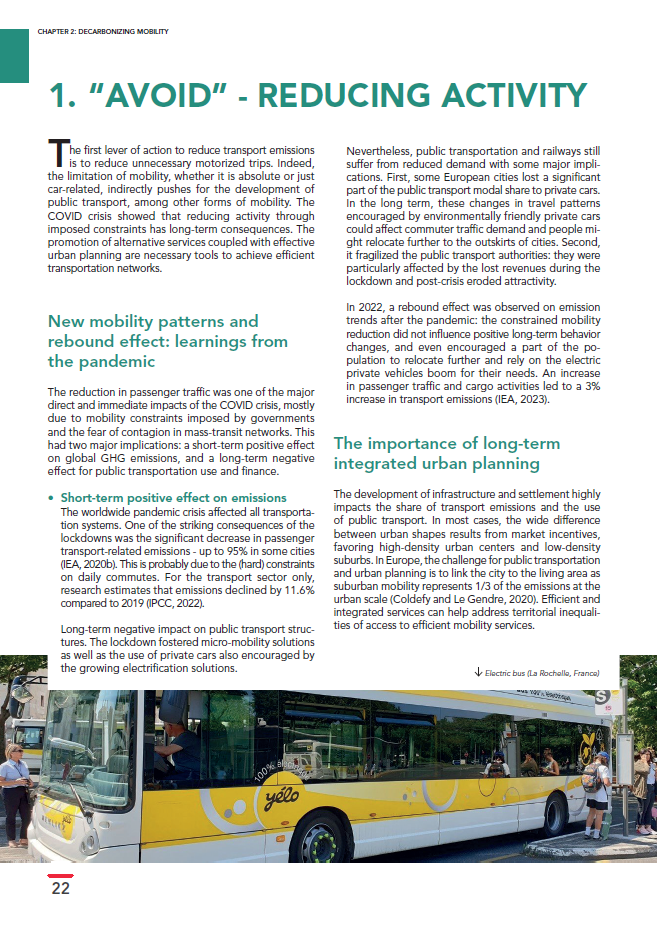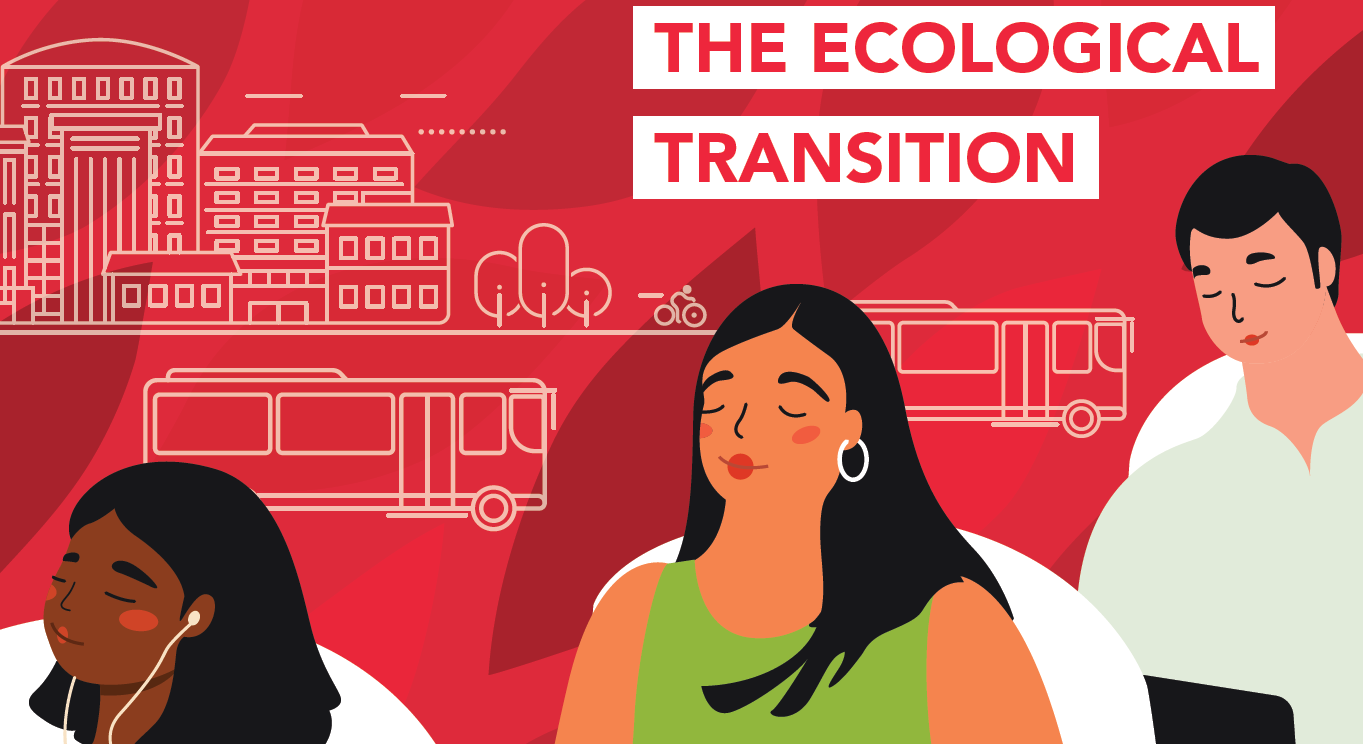As part of its support to the academic and research world, Transdev Group has established a partnership with the Sciences Po Paris Urban School to explore the developing context of green finance. 4 students from the "Governing Ecological Transitions in European Cities" Master's program (Daniele GIUSTI, Mateo GOMEZ, Eva MARTINEAU and Adèle STEBACH) examined the main financial tools available to local authorities in Europe, and came to conclusions about their usefulness in supporting the ecological transition in a sustainable way.
Based on an extensive series of interviews with experts and decision-makers from the European Commission (EC), research institutes such as the Observatoire français des conjonctures économiques (OFCE), partner organizations such as the International Association of Public Transport (UITP), European public operators such as the Madrid Metropolitan Transport Company (EMT) and the Budapest Transport Company (BKV), as well as Public Transit Agencies such as the Abruzzo Region in Italy, the students' summary report offers lessons on the state of green financing in Europe.
The report highlights a paradigm shift from European public funding, allocated on a project-by-project basis over a relatively short period of time and based on territorial cohesion and competitiveness criteria, to international funding, of mixed public and private origin, allocated to projects but also in the form of debt and equity, over variable durations and based on Environmental, Social and Governance (ESG) criteria. This observation reinforces our determination to provide our Clients with strong CSRD reporting, enabling them to access ESG funds under the right conditions over the long term.
Tansdev & Sciences Po Urban School's report
Download the publication
Furthermore, the study conducted by the Urban School students makes the link between green financing and public urban development policies, establishing a clear vision of the public mobility policy value chain, which connects urban planning, public mobility policy, contractual forms of service operation and financial flows, demonstrating that the more these elements are aligned, the more sustainable the public policy as a whole is and the more positive ESG impacts it produces.
Based on these analyses, the report makes the following recommendations:
- More financial support is needed for everyday mobility, as individual mobility and long-distance travel are strongly supported by national and European public funds.
- Most green funds today are directed towards mitigation actions (vehicle electrification, for example) and not enough towards adaptation actions (modal shift); this second area needs much more support.
- Transport-oriented development and the management of all forms of mobility by Integrated Transit Agencies on a metropolitan scale are the two initiatives with the greatest impact on urban mobility; the current structure for funds allocation does not sufficiently encourage these two phenomena.
- The development and operation of public transit services creates value, both on an individual and collective scale; however, this value is not estimated or recaptured by the industry, which suffers from a significant investment deficit.
- In the minds of decision-makers, the private vehicle is still perceived as the main link in the mobility chain, to the detriment of shared mobility: this relationship must be reversed if we are to make a success of the ecological transition in our territories.

